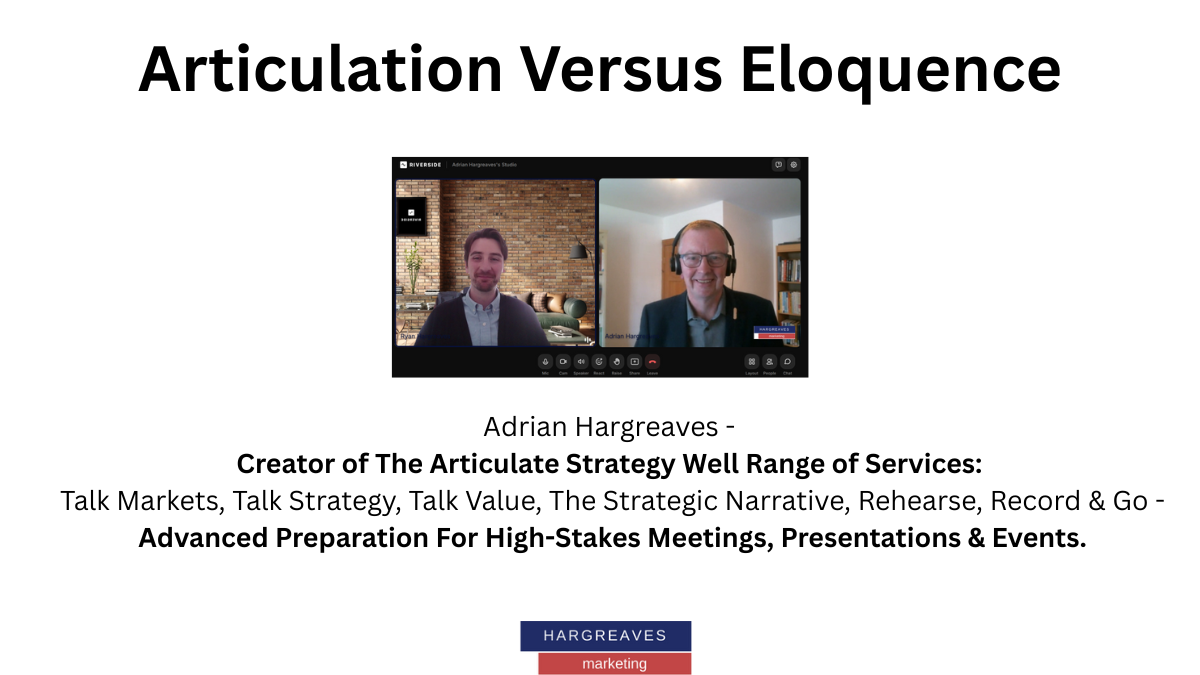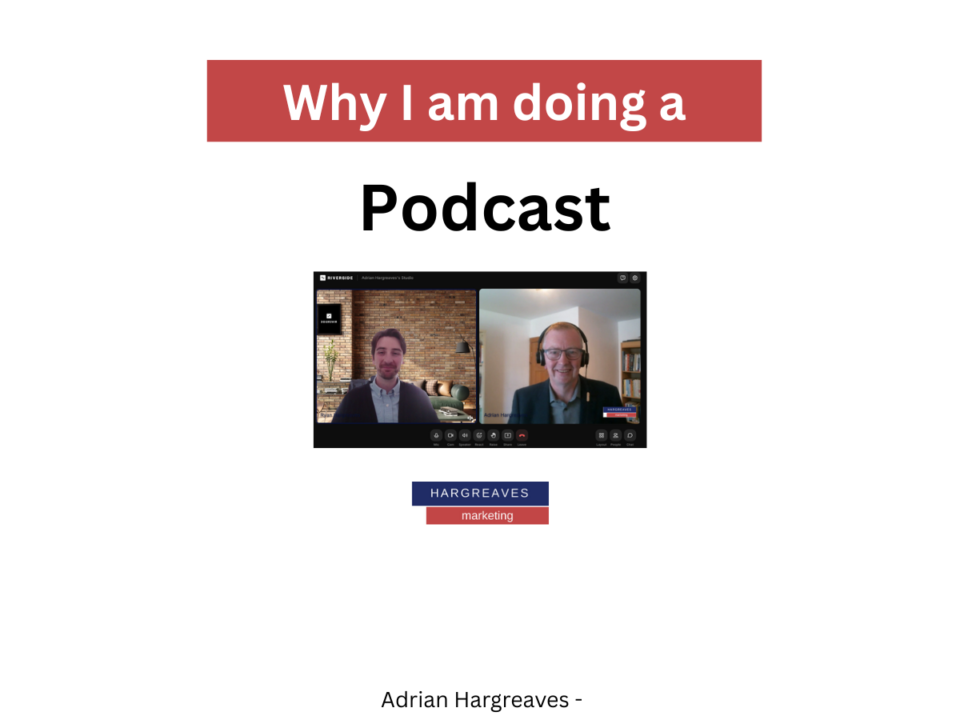
From Fear to Excitement: How Strategic Narrative and Rehearse, Record & Go Transform Leaders
6th September 2025
Strategy Is Plural in Practice: Why Businesses Need a Network of Aligned Strategies
15th September 2025Why Articulation Must Come Before Eloquence in Business Communication
When it comes to communication in business, there are two qualities that often come up: being articulate and being eloquent. They sound similar, but they’re not the same. More importantly, the order in which you develop them makes all the difference to your credibility.
At Hargreaves Marketing, we believe articulation comes first — always. Here’s why.
Articulation: The Foundation
To be articulate is to communicate with clarity, structure, and accuracy. It’s about making sure your ideas are thought through, well-formed, and easily understood.
When you’re articulate, you can stand up to scrutiny. If someone challenges your reasoning, you have the clarity and evidence to back it up. That’s the essence of credibility.
Eloquence: The Amplifier
Eloquence, on the other hand, is about persuasion, style, and impact. It’s what gives your words rhythm and resonance. Eloquence is powerful — but only if it’s built on a solid base of clarity.
Eloquence without articulation is just gloss. It may impress in the moment, but it quickly crumbles under questioning.
Why It Matters in Business
In boardrooms, pitches, and client meetings, credibility is non-negotiable. When your ideas are articulate, people believe you. When you add eloquence on top of that, they’re not just convinced — they’re inspired.
That’s why at Hargreaves Marketing we help our clients articulate their strategy first, then elevate it with eloquence. The result? Messages that are clear, credible, and compelling.
Clarity is the foundation. Eloquence is the amplifier.




